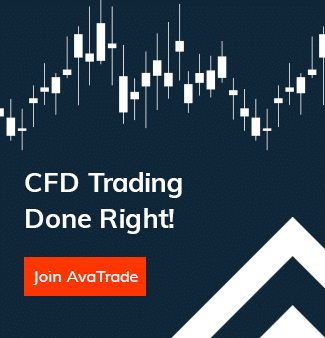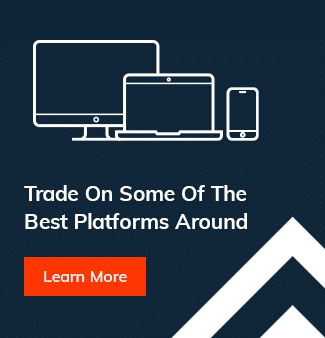
What is Gasoline
Some people call it petrol, others – gas, for short; but the full name for this commodity is Gasoline. It is transparent and mainly used as fuel. It is used mostly for internal combustion engines in motor vehicles and other forms of transportation.
Gasoline contains benzene and other carcinogens which can enter the environment from spills, leaks, handling and storage tanks. However, it remains one of the most traded commodities in the world.
Benefits of Trading Gasoline with Friedberg Direct
- A trusted regulated Canadian forex broker
- Segregated accounts with leading banks
- 24/5 Technical Support
- Get all the educational tools you need, to help you make your trading decisions
- Downloadable, web-based and mobile trading platforms available
How is it Made
Gasoline is a flammable and hazardous liquid, produced through the refinement of petroleum and crude oil. Petroleum provides more energy to the world than any other commodity.
The US is the primary consumer of gasoline. The majority of crude oil is centralized in the Persian Gulf and also spread out around the Gulf Mexico and Alaska.
Consumers around the world can often pay more at the pump due to taxes on gasoline. Prices can also vary based on the state and provinces you find yourself in. Being an oil producing country, i.e. a place where there is no transportation cost involved does not always guarantee cheaper prices.
If a natural disaster hits the area where a refinery is located the consumers will notice price jumps.
What Affects the Price of Gasoline?
There are several factors combined that make up the price of gasoline. Approximately 65% of the end product price is the actual crude oil trading price. Transportation and refinery costs total about 13% and then, finally, getting it to a station near you adds another 11%.
The price of gasoline is priced by quality grade – regular, midgrade or premium. Refineries charge more for higher octane fuel and the most expensive is premium grade. This is because fuel with a higher-octane level is less likely to explode or ignite under compression, which matters for high-performance gasoline engines.
The retail cost components are:
The actual cost of crude oil – Depending on where dealers are located, the business costs can vary. For example, extra costs incurred are salaries, benefits, insurance, location overhead costs, equipment etc.
Taxes – Sales tax and local and municipal governments taxes can have a significant impact on the price of gasoline. In most countries fuel tax is imposed on fuels used for transportation. This tax for most countries is considered general revenue for the country. The price differences internationally for gasoline mostly reflect the countries’ tax policies.
Marketing and distribution – Most gasoline is shipped via pipeline from refineries to consuming areas and then by tanker truck to the actual gas stations. Some retail locations are owned by refineries and others are owned by independent owners or businesses. Distance and travel time can affect the overall price.
Refining costs – These are the costs that turn crude oil into gasoline. The costs vary depending on the season and state. The costs depend on the type of gasoline being produced from the crude oil that’s used and the processing technology available in that specific location. These costs also depend on the operations of refineries, which often depends on the weather. For example, if you find the price of gasoline higher in the summer, this is because refineries in the Gulf of Mexico can be affected by hurricanes.
Gasoline Market
Exchanges that deal with gasoline future are: NYMEX
Trading hours: 23:00 – 21:59
Trading conditions at Friedberg Direct:
- MT4 Symbol: GASOLINE
- Increment: 0.0001
- Minimum trade size: 1000
We are Here to Help You Trade Gasoline
- Start trading energy commodities with as little as
- Trade Gasoline and other Energy CFDs with leverage
- A range of high end customizable trading platforms – MT4, MT5 and AvaOptions
- Use the short selling option when prices are going down
We encourage you to read more about Gasoline CFD trading here at Friedberg Direct by visiting the Trading Conditions & Charges Page. Don’t forget to check out the futures rollover dates to know when the current contracts expire.
Sign up today and enjoy the benefits of trading gasoline with a regulated Canadian broker!
Gasoline Trading FAQs
- What does RBOB mean in gasoline?
The acronym RBOB stands for “Reformulated Gasoline Blendstock for Oxygenate Blending”. Because RBOB gasoline is refined from crude oil, there is a high correlation between crude pricing and gasoline pricing, but there is also far more involved. Gasoline refineries are often located in coastal areas, which means the weather can have a huge impact on gasoline prices at times. Also of consideration is the refinery mix, or how much gasoline is being refined compared with other products like heating oil. Plus, the taxation of gasoline, which can vary widely from one jurisdiction to another, can also have a heavy impact on gasoline prices.
- Is it better to trade crude oil or gasoline?
Both crude oil and gasoline can be traded, but there are some differences in the two markets that might help a trader determine which commodity better suits their own trading style. For example, while both crude and gasoline can be volatile, gasoline tends to have higher volatility. Also, gasoline does have some seasonal tendencies that aren’t present to a great degree in crude.
- What is the best strategy for trading gasoline?
One of the most popular and best strategies for trading gasoline is the breakout strategy. This strategy looks for prices breaking out of a previous price range and making new highs or lows. Trading with breakout patterns looks to capture the beginning of emerging trends, making these trades very profitable when they work out. This is especially true for markets that trend strongly, like the gasoline market. But of course, where there is reward, there is risk too. Popular patterns to trade using this strategy include the head & shoulders pattern, pennants, and triangles.
These FAQs, comments/analysis do not take into consideration your individual personal circumstances and trading objectives. Therefore, they should not be considered as a personal recommendation or investment advice. They are intended for educational purposes only. Past performance is not indicative of future results. There is no guarantee that the contents or instructions will result in profits or not result in losses.







